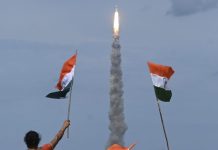In what could depress China-Nepal relations, China is seeking an exit from the prestigious Seti Hydropower Project. China had signed the agreement with Nepal for the 750 megawatt project 6 years ago and now the Chinese firm wants to pull out given the high costs. The Chinese company now finds the project financially impossible given the high resettlement and rehabilitation costs.
- India Anxious, as Russia, China, Pakistan May Build Strategic Alliance?
- Pakistan No Longer The “Darling of US”; Seeks Revised Foreign Relations
The Seti Hydroelectricity Project has now landed in a jeopardy after China’s keenness to pull out. In a memorandum of understanding, China had accepted the onus to execute the project. But this week, a high level delegation from CWE Investment Corporation told the authorities in Nepal that it finds the 750 megawatt West Seti hydropower project almost impossible to execute in financial terms.
Steep resettlement and rehabilitation costs of those who’d be displaced by the construction of the project has been cited as the main reason by the Chinese firm.
An official of the Nepal Investment Board states that the MOU signed by the Chinese firm with the Nepal Electricity Board will now have to be called off. To save the project the authorities in Nepal have proposed to reduce the capacity of the project to 600 megawatt from the initially decided 750 megawatt keeping the contract award of USD 1.2 billion unaltered. The authorities have also proposed to change the power purchase agreement and extend it to 12 years rather than 10 years which was initially agreed upon.
Despite these lucrative offers made by the Nepalese authorities, the Chinese firm still has concerns over costs and transmission of power to Kathmandu from the remote areas covered under the project. Technical difficulties and constraints related to finances still remain issues of discontent. China’s is reluctant to review its stance and will most probably end up walking out of it.
While Nepal’s foreign policy has opened up to China, this move from China might invite some unprecedented grudges between the two nations.




